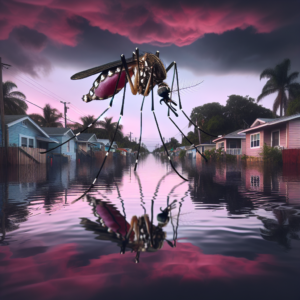
As National Latino AIDS Awareness Day approaches, communities across the United States are coming together to raise awareness about the disproportionate impact of HIV/AIDS on Latino populations. This observance, widely promoted by public health organizations, underscores the urgency for enhanced education, prevention, and treatment services. The Southern Nevada Health District, among others, intensifies efforts to address these challenges and work towards a healthier future for all.
National Latino AIDS Awareness Day serves as a critical reminder of the ongoing challenges faced by the Latino community in combating HIV/AIDS. According to HIV.gov, Latinos are disproportionately affected by this epidemic, experiencing higher rates of new HIV diagnoses compared to other racial and ethnic groups. The day aims to break down barriers of stigma and misinformation that often hinder access to necessary healthcare services, fostering environments where individuals are encouraged to seek testing and treatment without fear.
Public health organizations across the nation, such as the Southern Nevada Health District, are actively engaged in promoting awareness and providing resources. They emphasize the importance of culturally competent care and targeted outreach programs to effectively reach Latino communities. Through community partnerships, these initiatives strive to educate individuals on prevention methods such as PrEP and continually update them on treatment advancements, thus empowering communities to make informed health decisions and improve their quality of life.
In Southern Nevada, where the Hispanic population continues to grow, the need for effective public health strategies is paramount. The Southern Nevada Health District has been pivotal in initiating local campaigns that highlight the intersection of public health and community engagement. By leveraging local influencers and bilingual resources, these efforts aim to bridge the gap between healthcare systems and Latino populations, ensuring that everyone has equitable access to HIV testing and education.
Despite the progress made over the years, challenges persist in tackling HIV/AIDS in Latino communities. Language barriers, socio-economic disparities, and a lack of insurance or immigration concerns contribute to the complexity of addressing these issues. Therefore, National Latino AIDS Awareness Day not only promotes awareness but also calls upon policymakers and public health leaders to design solutions that cater to the unique needs of this community. By fostering an inclusive dialogue, there is hope for systemic change that transcends one day of awareness.
As National Latino AIDS Awareness Day highlights, addressing the HIV/AIDS epidemic in Latino communities requires sustained efforts from both public and private sectors. By acknowledging the specific challenges faced and implementing thoughtful interventions, there is an opportunity to turn the tide on the disproportionate impact of HIV. With continued advocacy, education, and community empowerment, strides can be made towards a future where all individuals, regardless of their background, have access to the care and education necessary to live healthily and with dignity.






